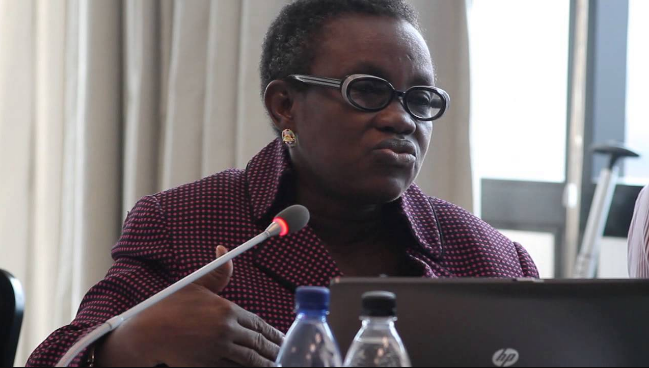
Engr. Greg Ogbeifun
AfCFTA is to encourage intra-African trade amongst ourselves and the ways of trading amongst ourselves is by sea. That means we need ships, ship ownership, ship financing, ship repair. Everything surrounds ships and that is economic activity already generated not only for the industry but for the nation as well because it is adding to the GDP of our nation and other countries in Africa that have seaports. There is also port because ships operate in ports. All the ports will become busy, generate more revenue and employment and add to the country’s GDP. If you look at maritime, there are other stakeholders that are related to maritime, like the maritime lawyers and insurance. AfCFTA is offering a lot of opportunities because it also has to do with air, such as intra-country air connections at cargo airports. The same thing that affects maritime also affects the air like the planes, airport, air insurance and legal regulations. Also, there is the road, for a long time the trade between our neighbouring countries particularly Benin Republic has been more by road and that is a very busy route, although 99% of it is illegal but it is by road but if properly regulated and controlled, that is a huge source of revenue for both countries. AfCFTA has been going on for a long time, particularly by road, sea and by air. What AfCFTA is trying to do is removing all trade barriers between all countries, so that once you meet the regulations in Nigeria, that authorises one to go to any of the African countries to trade without hindrance.

Mr. Mike Igbokwe, SAN
I must say what AfCFTA is all about is to bring Africans together, to trade together and also bring benefit of trading nearer to the people. For international trade, the most important thing to note are shipping, maritime transportation because passengers are human beings and they can be moved by ships from one country to another. So, the maritime sector has a lot to do and part of the benefit is that it would enhance the development of the sector by acquisition of ships by shipowners to carrying the cargo from one country to another by import and export and of course training, promotion and education of seafarers that will manage the ships. Of course, these ships would have to be insured and the seafarers also. The insurance companies will also benefit from this, banks and financial institutions that will be interested in financing the acquisition of ships will also have things to do because ships can be capital intensive because of the cost. It is going to create an enlargement of cargo, instead of cargo moving from Nigeria, I am talking about cargo moving from different countries in Africa, these cargoes will need more vessels to carry them from one point to the other. A boom will arise in the acquisition of vessels, cottage industry will also arise because products exhibited here are being manufactured somewhere for export to get some people interested in importing them in other countries. So, what is going to happen is that because there is an increment in demand, supply will have to increase to meet the demand. The maritime sector has a role to play in this, making sure that all these benefits are attracted to Africans.

Dr. Emeka Akabogu
Trade across the continent is either trade in goods or services. If it is trade in goods, it will be on the back of effective logistics, which includes shipping logistics. A good number of the significantly buoyant countries of the continent are by the coast side and even if they are not, if you have a strong and effective shipping regime across the African coast, particularly like we do on the West and Central African area, then it means that improving and integrating trade between African countries necessarily increases the need for shipping of goods and services. That means one is able to ship more goods, charter more vessels, employ more crew and broadly expand the market across the value chain for shipping. So, that is the direct impact that AfCFTA trade will have. Of course that has to be within the context of ensuring that the things that need to be done are done.

Dr. Mkgeorge Onyung
Talking about maritime industry, I mean shipping specifically, without ships there is no AfCFTA and AfCFTA will not succeed without ships. Without shipping there is no shopping. Telling Africa to come and shop as a continent to make 27 trillion dollars by the year 2050 – that will not happen if we don’t have enough ships to move around the trade. Thirty-eight African countries are connected by sea and the fastest way to trade will be shipping. The truth of the matter is that we must make a concerted effort to get us to have ships and the best time was 20 years ago but the next best time is now.

Captain Sunday Umoren
Indeed, shipping’s ability to offer economic and efficient long distance transport puts it at the centre of the world economy and according to the International Chamber of Shipping, about 11 billion tons of goods are transported by ships each year, which represents an impressive 1.5 tons per person based on the current global population. Shipping’s capacity to transfer goods and raw materials from where they are produced to where they will be ultimately processed, consumed and utilized underpins modern life. As of 2019, the total value of the annual world shipping trade had reached more than USD14 trillion. Shipping is the bedrock of globalization. There are identifiable products in trade and industry whose shipments run into billions of tons transported from one country to the other, sometimes within same country. Such goods and raw materials allow countries to create industries, construct cities, and transform resources into refined products for consumption and re-export. This ability to add value drives prosperity and enables countries, especially African countries to scale up. Thus, shipping helps ensure that the benefits of trade and commerce are more evenly spread as no country is entirely self-sufficient due to spatial disparity, but relies on maritime trade to sell what it has and buy what it needs. The creation of the African Continental Free Trade Agreement (AfCFTA) provides a unique opportunity to further boost growth, cut poverty, and improve our trading within Africa. A World Bank 2020 report estimates that the AfCFTA has the potential to raise income in the continent by seven percent by 2035 and lift 40 million people out of extreme poverty, mainly by spurring intra-regional trade.
We have severally heard and most of us are proponents of the positivity of AfCFTA and its high points which tilts to making it easier for African businesses to become integrated into regional and global supply chains. My hope is that all African industrial policy makers should be bold in developing and implementing the extensive range of reforms and trade facilitation measures needed to realize the substantial rewards and dividends that the agreement offers, noting its propensity to increase employment opportunities and wages for unskilled workers and help close the wage gap between men and women. We should also be working to improve the many existing shortcomings including the many supply-side constraints to Africa’s industrialisation efforts, including poor infrastructure on the continent and limited capacity for technological development and innovation. Specific focus areas should include infrastructure development, regional specialisation and African value chain enhancement, SME promotion, a clean energy transition and the development of African technologies.
With all the great benefits that the Agreement brings, it may suffer setbacks without the active engagement of the private sector and development partners to support its successful implementation.
Finally, may I remind you of the need not to totally ignore the big role of the carriers (vessels and their owners) and their part in delivering on AfCFTA. This is where Abuja MoU comes in as part of your due diligence before engaging the carrier. We are ready to partner with you in ensuring the safe carriage and delivery of goods with minimal issues relating to safe and responsible maritime transportation. While acknowledging the fact that a greater proportion of our export and import are carried on board foreign-owned vessels, the Abuja MoU with its clear mandate by the International Maritime Organisation and its 22 Member States will continue to ensure that its objective of ridding this region of sub-standard ships is religiously maintained. ACFTA came at the right time, we need to act fast and snatch the moment. Nothing stops this region from having a strong ship owing capacity, thus eliminating the burden and impact of high freight rate from foreign ships. A transformed and growing Africa with a safer, more robust, attractive and predictable market is certainly in the interest of all parties within and outside the continent.

Mr. Mark Walsh
Right now most of our goods are moved by the European and Chinese vessels. So, if the African shipping get involve in moving of cargoes, it will save a lot of money for everybody and it will get Africa involved with moving trade because right now it is not moving at all when it comes to vessels. If Africans can work together to move cargoes around and get through to everyone, it would be beneficial not only for Nigerian but all the African countries. The truth is Africa needs to be more united in reviving the maritime sector.

Ms Funmi Folorunsho
Our maritime sector could benefit adequately from AfCFTA. Nigeria has more work to do in order to position itself as the maritime hub for AfCFTA. In the Nigerian port sector, road, rails, inland infrastructure, coupled with the perennial and embarrassing gridlock on our port access roads may not cope with the anticipated increase in economic activities occasioned by AfCFTA. For the maritime sector to benefit fully from AfCFTA, and assume the position of maritime hub, there should be conscientious efforts by government and the private sector to carry out some quick intervention measures. The first is to fix the road on the major trade corridor connecting Nigeria and West African neighbours. Secondly, the port automation of processes and procedure with the establishment of a single window – there is need to provide 24 hours goods and effective scanner at the port, fast track the development of Lekki deep seaport and improve the agricultural value chain. If these are implemented, they will spur economic growth and prosperity and eradicate poverty on the African continent. This will boost job creation, eliminate barrier to trade, and facilitate free movement of goods produced by African countries and boost inter-regional trade. The scheme will increase the volume of economic activities for African ports including Nigerian ports, at enterprise level. It will also improve competitiveness by exploiting opportunities, boosting intra-African trade, which would lead to more shipping activities for Nigeria.